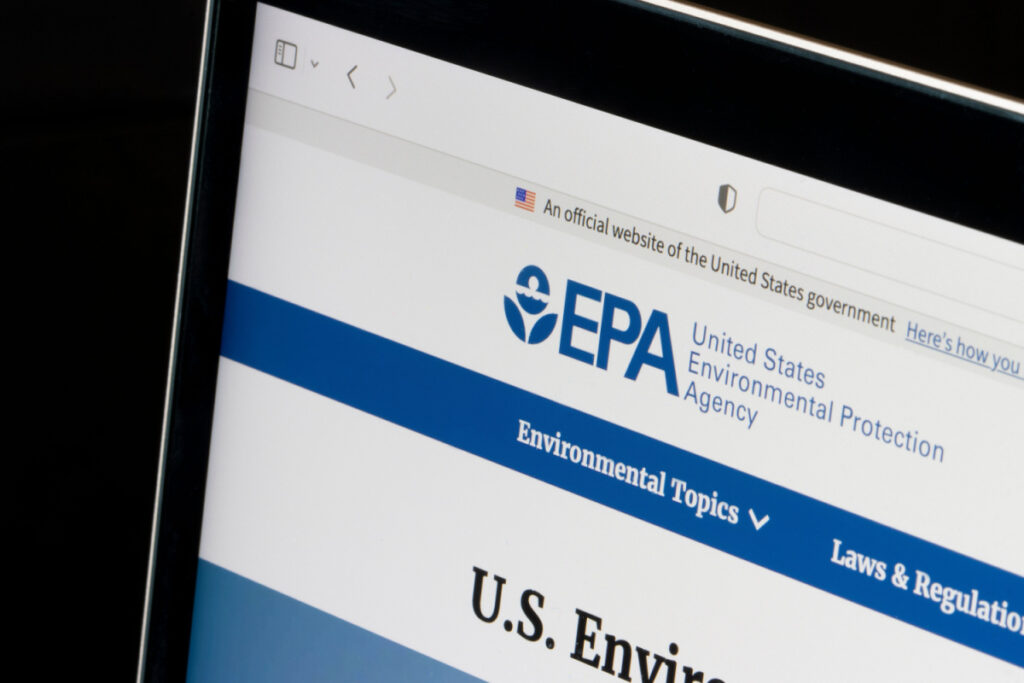Top Class Actions’s website and social media posts use affiliate links. If you make a purchase using such links, we may receive a commission, but it will not result in any additional charges to you. Please review our Affiliate Link Disclosure for more information.

Update:
- The Environmental Protection Agency (EPA) finalized the first-ever regulations for per- and polyfluoroalkyl substances (PFAS) in drinking water.
- Public water systems will have five years to implement solutions to reduce the presence of the forever chemicals in drinking water exceeding acceptable levels.
- The regulations stipulate public water systems will have three years to complete an initial monitoring for PFAS and must continue to monitor for compliance going forward.
- Starting in 2027, water systems will also have to start informing the public about the level of PFAS in drinking water.
- Starting in 2029, public water systems that violate the regulations will need to take actions to correct the issue and notify the public about the violation.
- The EPA proposed creating new rules on limiting forever chemicals in drinking water in March 2023, suggesting a proposed maximum contaminant level of four parts per trillion for the PFAS’ perfluorooctanoic acid and perfluorooctane sulfonate.
Forever chemicals in drinking water overview:
- Who: The U.S. Environmental Protection Agency has proposed a new rule to limit forever chemicals in drinking water.
- Why: Forever chemicals (PFAS) persist in the environment and human body for an extremely long time and can pose serious health risks.
- Where: The proposed regulations would apply throughout the United States.
- How to get help: Consumers who drank or cooked with water containing PFAS and became ill may be eligible to join a lawsuit investigation.
(March 21, 2023)
The U.S. Environmental Protection Agency has proposed a new rule to limit “forever chemicals” in drinking water, Law360 reports.
The term “forever chemicals” is used to describe per- and polyfluoroalkyl substances (PFAS), which have a tendency to persist for an extremely long time in the environment and in human bodies.
The EPA has proposed maximum contaminant levels of four parts per trillion of perfluorooctanoic acid (PFOA) and perfluorooctanesulfonic acid (PFOS) in drinking water systems throughout the country.
Four other “forever chemicals” may be subject to similar caps in the future.
Under the EPA’s proposed rule, public water systems would be required to monitor the presence of forever chemicals in drinking water and notify the public if the levels exceed the standards.
States will be required to establish regulations that meet the EPA’s standards, if they have not already.
“Communities across this country have suffered far too long from the ever-present threat of PFAS pollution,” EPA Administrator Michael Regan said in a statement. “EPA’s proposal to establish a national standard for PFAS in drinking water is informed by the best available science and would help provide states with the guidance they need to best protect their communities.”
Forever chemicals in drinking water may pose serious health risks over time
A diverse group of parties have sought to limit the acceptable levels of forever chemicals in drinking water, including Republican politicians and environmental advocacy groups, according to Law360.
PFAS have been utilized for decades, but scientists have recently learned that exposure to these chemicals poses serious health risks, including decreased fertility, increased risk of certain cancers and developmental delays in children.
Because there is reportedly no safe level of exposure to PFOA and PFOS, the EPA says the goal should be to set the maximum contaminant level for these PFAS to zero.
If the EPA’s proposed rule is enacted, it may be subject to legal challenge from industry advocacy groups.
The EPA’s proposal to regulate forever chemicals in drinking water is just one of the federal agency’s latest efforts to tackle the issue of PFAS contamination. Earlier this year, the EPA laid out a plan to reduce PFAS in the nation’s waterways, with a focus on runoff from industrial sources.
Are you concerned about the presence of PFAS in drinking water? Tell us your thoughts in the comments!
Don’t Miss Out!
Check out our list of Class Action Lawsuits and Class Action Settlements you may qualify to join!
Read About More Class Action Lawsuits & Class Action Settlements:















6 thoughts onEPA finalizes first-ever limits for forever chemicals in drinking water
High blood pressure while pregnant
That is horrible please add me!
add me please
add me please
Please add me
Ad me